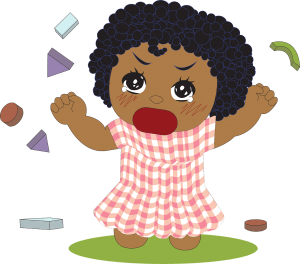
Teaching Kids About Anger Management
As kids develop and mature, so do their emotions and reactions. For the most part, when kids are happy, they smile and laugh. When they’re sad, they pout and cry. We are generally OK with these displays of emotion for normal circumstances. However, anger is a different story. Yes, kids may become angry, and that’s OK depending upon the situation. It’s how they handle their anger that’s the most important. Here are some ways to teach kids how to best deal with their feelings of anger and how to resolve their emotions in a positive manner.
Take a Breather
Once you see that your child is overly angry about something, it’s time for a “time out.” Deep breaths and a little time to cool off are key to reigning in the issue before something gets out of control. Have your child sit down, get her a glass of cold water, and count to 20. Oftentimes, an outburst or irrational reaction happens immediately, so if there is a break period, you can nip a full-blown anger meltdown in the bud. Once you see your child has calmed down to a reasonable extent, you can help her find a new way to deal with her emotions. It’s now OK to talk it through and confront the issue from a more peaceful place, rather than a place of rage.
Ask… “Are You Mad or Frustrated?”
Sometimes kids feel angry when what they are really experiencing is frustration. Not everything will go as planned or the way they want it to. Anger won’t change things or solve any problems, and this is a lesson you can help teach your child so she doesn’t grow up feeling resentment and unnecessary pain. Sit down with your child and find out what the issue is. Is she really angry or just annoyed because something is not to her liking? A better way to deal with frustration is to find a new solution or talk with others involved to come to a mutual agreement. Kids may not understand what frustration feels like and chalk it up to anger, thus reacting poorly. With a few tips from you, she can steer her energy towards something productive.
What We Can Do to Fix the Problem
Anger isn’t a helpful emotion when your child cannot deal with resolving her issue(s). Talk with your child about a plan to curb her anger and work towards a way to change her emotion to something positive. Perhaps she needs to sit with a friend who she feels caused her to feel anger. Maybe she needs to find an outlet to express herself more strategically. Suggest she come to you to talk, sit alone with a book or a toy until she’s calmed down, or write her feelings in a notepad so she can vent. Most importantly, let her know it’s OK to feel emotional, but built-up anger is toxic and will make her feel bad on the inside. Soon, she will be better able to understand why she feels the way she does and will find a plan to fix the problem with an outcome she’s proud of.
How do you deal with your child’s anger? Have you found effective solutions to handle out of control reactions and emotional distress? For more information like this, please visit All My Children Daycare.
By: Melissa A. Kay
